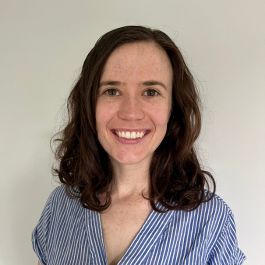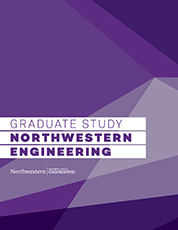Aubrey Kraft, EDI '16Lead User Experience Researcher, Collective Health

Industry: Healthcare, UX Research
Affiliated Programs
Master of Engineering Design Innovation
linkedinAlumni Interview
"Learning to lead projects, work with stakeholders and present my work in compelling ways have been some of the most important skills I learned during my time at EDI."
Tell us what your current title is and what your role entails.
Lead User Experience Researcher - My role entails a lot of different things. I lead large foundational discovery research efforts that shape the future roadmap of the company, support designers running usability tests, build surveys to measure the effectiveness of some of our programs and partner with data analysts to set up and conduct evaluations.
When you started EDI, did you know what industry you wanted to work in?
I’ve always been interested in health and healthcare related fields, so I came to EDI set on working in healthcare though I didn’t know what that would look like. EDI gave me the opportunity to explore other interests and work on projects related to other industries though ultimately my internship project at a hospital reconfirmed my passion for healthcare. There are so many opportunities to drive positive change in the healthcare industry and that continues to inspire me.
Tell us about an EDI course that made an impact on you.
There are components of every course I took during my time in EDI that influenced me and helped me build the skills that I use today. Learning to lead projects, work with stakeholders and present my work in compelling ways have been some of the most important skills I learned during my time at EDI. The course that stands out to me most is Designing Product Interactions. Designing Product Interactions showed me the emotional side of design and taught me to think deeply about how each small interaction can influence an experience. I still notice how sounds, pushing a button or the texture of something make me feel!
What is one lesson you learned during your EDI journey that has stuck with you?
Practice empathy. Through empathy, we are able to put ourselves in other people's shoes and really understand what they are feeling. During research for my thesis project, I spoke with several people with vision impairments but was struggling to really understand their experiences. I cut out cardboard glasses with different patterns in the lenses and used those while baking. It changed a lot of my assumptions and helped me truly realize the experiences of those with vision loss. I also used these glasses as storytelling to help those around me build empathy.
What was your EDI thesis project and what inspired you to pursue it?
My thesis project explored the experience of baking with vision loss which ultimately led me to develop a baking assistant that uses natural language processing that guided people through the baking experience hands-free. I have loved baking and sharing treats since I was little and had been talking with a family member about their experience navigating the world with vision loss. I wanted to understand more about their experiences and use my skills for good.
What advice do you have for an EDI student interested in working in your industry?
Working in healthcare can be extremely rewarding and very complicated with an intricate web of laws. Be curious, ask questions and learn to problem solve collaboratively. On so many occasions I’ve been told that we can’t do something we are thinking about and after taking the time to ask questions and learn why we’re often able to find a different solution. My other piece of advice for working in healthcare is to focus on storytelling skills and tools. Being able to weave a captivating story of people’s experience with healthcare goes far in building understanding and empathy.

